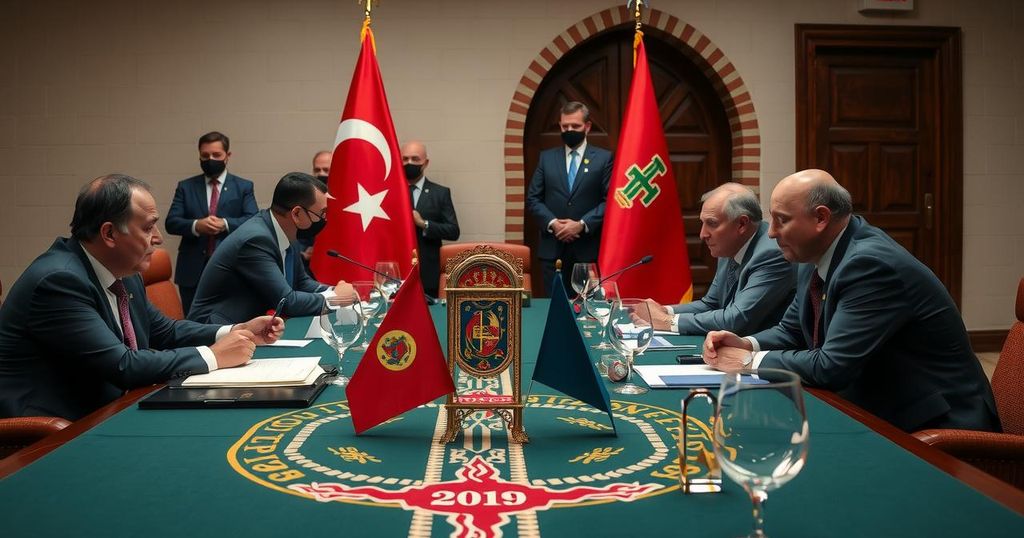Rival Libyan institutions have resumed discussions in Morocco to overcome a political impasse and avoid chaos. The talks involve two legislative bodies: the High Council of State and the House of Representatives. Minister Nasser Bourita highlighted the importance of unity and credible elections, as previous efforts have stalled since the failed election in December 2021, exacerbating Libya’s longstanding divisions.
On Wednesday, delegations from conflicting Libyan institutions reconvened in Morocco with the intention of resolving an entrenched political stalemate and preventing a descent into further chaos. This meeting, held in Bouznika near Rabat, sees the High Council of State from the west and the House of Representatives from the east engaging in dialogue. Nasser Bourita, the Moroccan Foreign Minister, emphasized the need for these factions to collaborate in ensuring Libya’s unity and facilitating credible elections. He asserted that international conferences cannot substitute the essence of inter-Libyan dialogue, which possesses genuine credibility and ownership. The political efforts to resolve years of division and violence have been hindered since the collapse of the electoral process planned for December 2021 due to disagreements on candidate eligibility. The House of Representatives emerged as the national parliament in 2014, initially tasked with overseeing a political transition. Subsequently, a 2015 agreement formed the High State Council as an advisory body. However, the House appointed a rival government, establishing a renewed divide between eastern and western Libya.
Since the fall of Muammar Qaddafi in 2011, Libya has faced significant turmoil, culminating in a split in governance between eastern and western factions by 2014. This division arose after a NATO-backed uprising, which resulted in ongoing conflicts over political legitimacy and territorial control. The situation complicated further with failed elections and the establishment of rival governments, necessitating dialogue to achieve stability and a unified approach towards governance.
The recent talks in Morocco represent a critical step toward resolving the ongoing political deadlock in Libya. With both parties acknowledging the necessity of collaboration to achieve credible elections, these discussions could pave the way for renewed political stability. The persistent divisions, however, underscore the challenges in the inter-Libyan dialogue, reminiscent of the complexities faced since the 2011 uprising.
Original Source: www.arabnews.com







